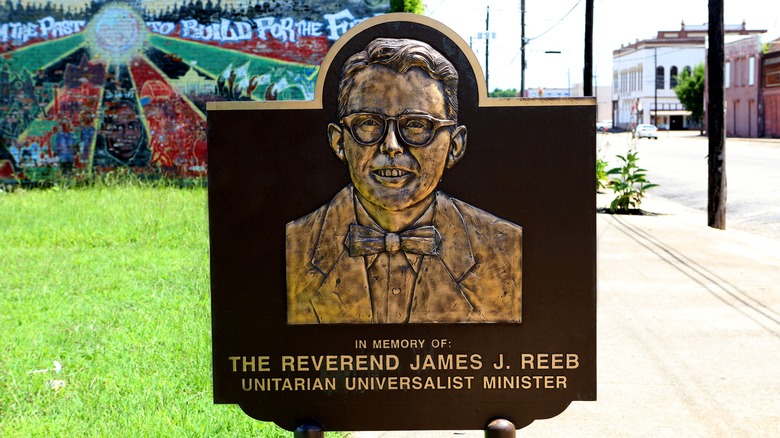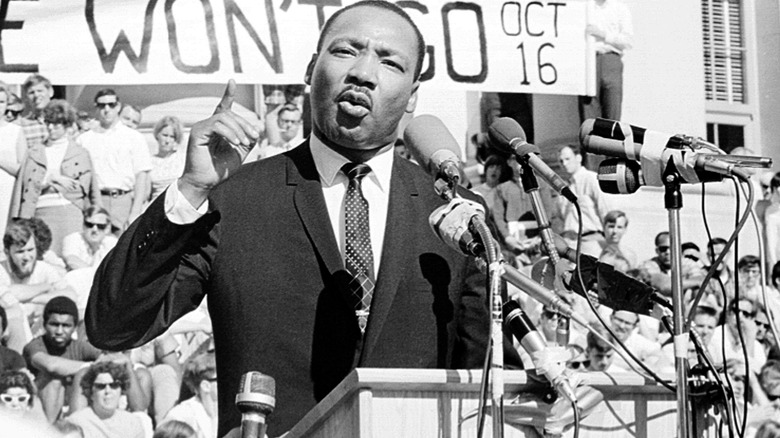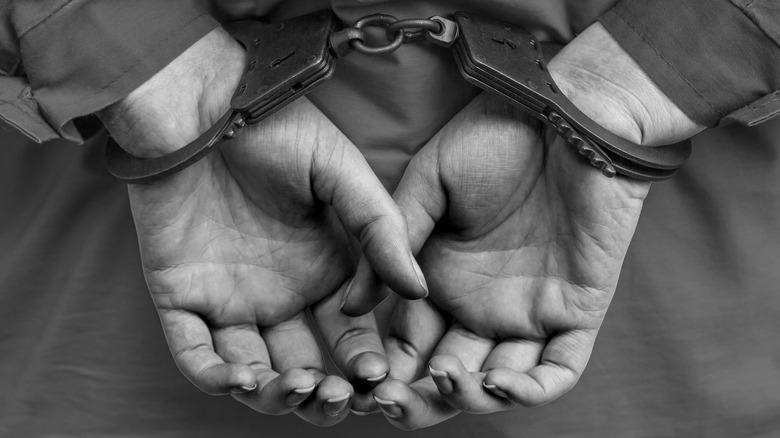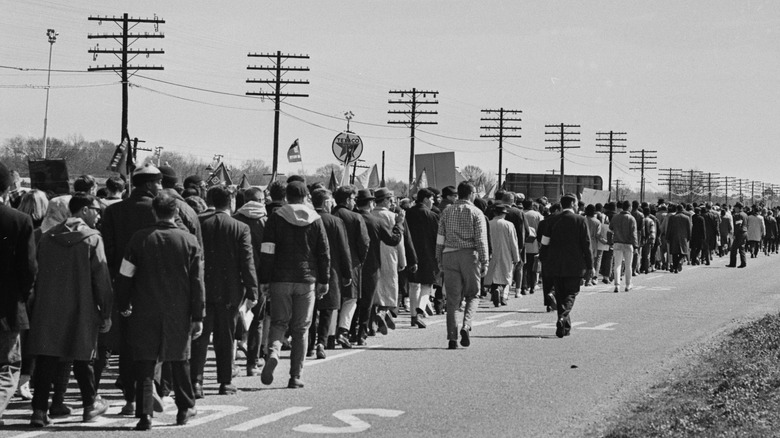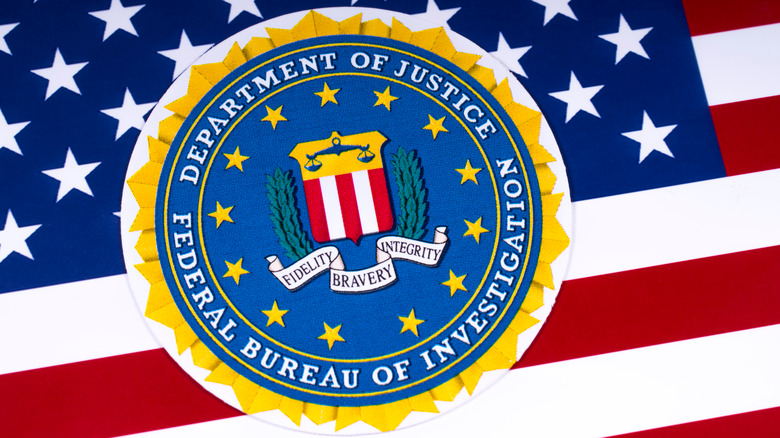The Unsolved Murder Of Minister And Civil Rights Activist James Reeb
When it comes to unsolved murders, one of the most unsettling may be that of Unitarian minister James Reeb. Reeb, a white man, lived in Boston with his wife and four children, where he worked for the American Friends Service Committee. On March 7, 1965, Reeb watched violence unfold on television as civil rights activist John Lewis and over 600 others attempted to cross the Edmund Pettus Bridge in Selma, Alabama (via History). Along with many others viewing the event, Reeb saw police attack demonstrators on what has since been declared "Bloody Sunday," according to Stanford University.
The following day, Reverend Martin Luther King Jr. called for a nonviolent protest for voting rights in the city. He especially appealed to clergy across the nation to join him for a demonstration on March 9. Reeb found out about King's plea from the regional office of the Unitarian Universalist Association on March 8 (via Stanford University).
James Reeb responded to Martin Luther King's call for nonviolent protest
Martin Luther King Jr.'s call prompted James Reeb to act, and by that evening, he was on a plane to Selma. On March 9, King led a group of people to a bridge where they stopped, prayed, and returned to Brown's Chapel without incident (via Stanford University). While other ministers left the city after the march, Reeb chose to stay in the city and take part in another demonstration that was scheduled for the following Thursday.
That night, Reeb dined with two other ministers — Orloff Miller and Clark Olsen — at a restaurant. After they left the establishment, they were attacked by a group of four men who were reportedly yelling racial epithets. One man severely attacked Reeb with what AL.com described as a 3-foot club or pipe, hitting him in the head above his left ear. The attackers kicked Reeb and the others before fleeing the scene. Reed, who was only 38 years old, was rushed to a hospital in Birmingham, where he died two days later.
Three men were taken into custody for Reeb's death
One month after James Reeb's death, officials took four men into custody, according to Newsweek. Police arrested Elmer Cook, William Stanley Hoggle, Namon O'Neal Hoggle, and R.B. Kelley. According to court documents, Kelley was the only one of the four to make a statement to the police. Authorities found a club that matched the description of the one used in the attack, but it contained no DNA evidence. Cook, Stanley Hoggle, and O'Neal Hoggle were charged with conspiracy to violate the civil rights of Reeb and the other ministers.
The case went to trial on December 7, 1965. While the defense team called more than 150 witnesses to support the defendants, only two men were witnesses for the prosecution: Clark Olsen and Orloff Miller. They identified Elmer Cook as one of the attackers. Three days later, it took less than two hours for an all-white jury to acquit all of the men accused, per NPR.
James Reeb knew the dangers of going to Selma
With civil rights issues at a peak in the 1960s, James Reeb knew the risk involved in going to Selma. After the attack, his wife, Marie, flew to Alabama and spoke with reporters. She explained that her husband knew about the dangers of taking part in the demonstration. According to AL.com, she said she would have preferred that her husband didn't go, but he "felt he had to go."
Reeb's death caused a national outcry, and on March 15, President Lyndon Johnson addressed the tragedy when he delivered a draft of the Voting Rights Act to Congress on March 15. He called Reeb a "good" and "godly" man. Per Beacon Broadside, King eulogized Reeb on the same day at Brown's Chapel in Selma, where he told the crowd that Reeb symbolized the "forces of goodwill in our nation." King also said that Reeb's crime was that he "dared to live his faith: he placed himself alongside the disinherited Black brethren of this community."
The case was reopened in 2008
In 2008, the FBI reopened the case in response to the Emmett Till Unsolved Civil Rights Crime Act. The legislation required the organization and the Department of Justice to revisit unsolved cases and determine if other perpetrators could be found or if other charges should be filed. NPR's investigation revealed that the FBI did not interview Frances Bowden — a witness in the 1965 trial — or William Portwood, who was later revealed to have also taken part in the attack. Furthermore, in the years since the legislation went into effect, only one prosecution has taken place.
Then-FBI Civil Rights Unit Chief Cynthia Deitle told NPR that federal jurisdiction on clod cases was limited to bombing, kidnappings, and crossing state lines to commit murder. She told reporters that her first thought on receiving such a case was that there was no federal crime committed. In 2018, Reeb's widow, Marie, said that she was hoping justice would be served, adding that "of course it wasn't."
NPR highlighted the case in 2019
In 2019, NPR conducted a four-year investigation into the case and claimed to have uncovered new evidence, including the identity of a man who took part in James Reeb's attack. After looking into FBI records, two reporters, who were conducting an investigation for the "White Lies" podcast, spoke with Frances Bowden. She said the three men acquitted did attack Reeb. She also shared that another man, William Portwood, also took part in the attack.
According to the records, William Portwood, 89, told the reporters that he was there at the scene and admitted to kicking someone. Records showed that the Federal Bureau of Investigations questioned Portwood, but he refused to make a statement. One of the other attackers admitted Portwood was at the scene, but Portwood's wife said her husband was home with her the night Reeb was attacked. Portwood died two weeks after NPR's investigation, taking anything he knew to the grave.
